“Rustin” Screenwriter Julian Breece on Giving a Legend his Due
There are countless unsung heroes of the civil rights movement who will never get the recognition they deserve, yet it’s hard to imagine an overlooked figure more central to the cause and more courageous and capacious in spirit than Bayard Rustin. While historians are well aware of the impact Rustin had on the civil rights movement writ large and specifically the March on Washington, most Americans are not.
George C. Wolfe‘s Rustin (in theaters now) offers a course correction. Wolfe directs from a script co-written by Julian Breece, who has put ten years into shaping the story of a larger-than-life figure whose life went so largely unapplauded. Breece first heard about the project a decade ago and petitioned Oscar-winning screenwriter (and his co-writer on Rustin) Dustin Lance Black to give him a shot. Once onboard, Breece faced the challenge that every storyteller attempting to craft a biopic about a legend must surmount—how do you capture the essence of a figure so crucial and so complex into a single movie?
Breece’s approach was to focus on Rustin’s ingenious, tireless efforts to orchestrate the 1963 March on Washington. Rustin was not just a crucial architect of this defining moment in American history, but he was also a mentor to Martin Luther King Jr., and these dual roles gave Breece the backbone of his story, vividly showing how Rustin helped take the March on Washington from an impossible dream to King’s iconic “I Have a Dream” speech on the steps of the Lincoln Memorial.
“I grew up thinking whatever I did, I was going to have to be behind the scenes or in the shadows because I was queer, and I’m sure Bayard felt some of that as well,” says Breece. He was talking specifically about how Rustin, who was openly gay well before the March, was sidelined during portions of the civil rights movement on account of a whisper campaign about his sexuality. Eventually, King would stand shoulder-to-shoulder with his mentor, but it was the journey of getting to that moment on the steps of the Lincoln Memorial that Breece set his sights on.
We spoke with Breece about his decade-long pursuit of a script worthy of Bayard Rustin, Colman Domingo’s absorbing performance, and what he hopes audiences will take from Rustin’s life.
Tell me about this ten-year journey you went in researching and writing Rustin.
The year I found out about the project, in 2013, I was temping. I’d won some screenwriting awards coming out of grad school for a screenplay I’d written about the ball scene in New York, but none of that had translated into work, so I was still doing my spec scripts and working on a studio lot. My manager told me that Dustin Lance Black [Oscar-winner for his Milk screenplay] was producing a movie about Bayard Rustin, and he’s looking for a writer. At the time, it was still difficult to get into any rooms for features, particularly for Black writers. There weren’t a lot of us in the system in 2013.
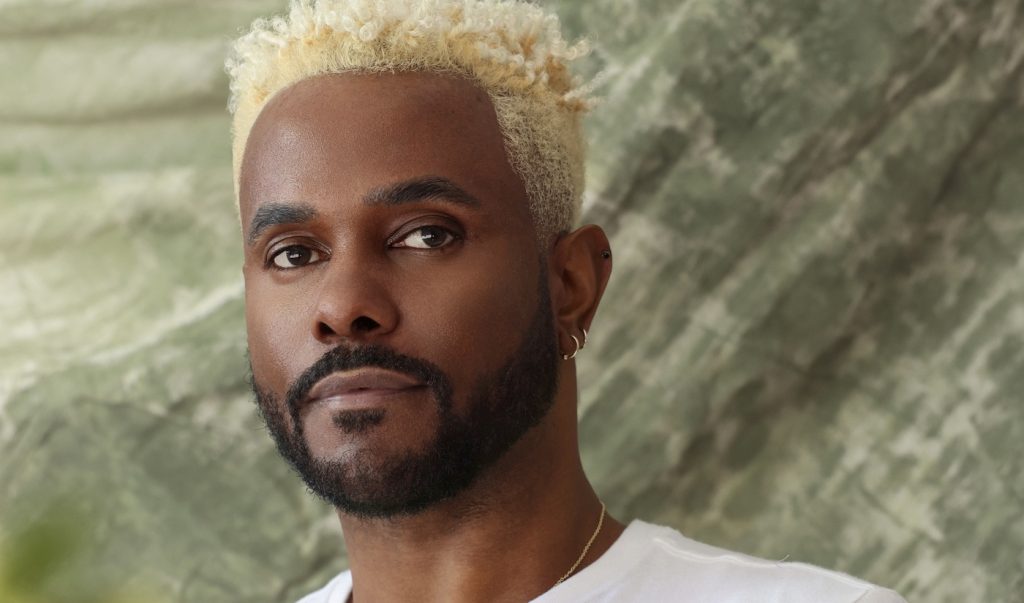
So, how did you get to Dustin Lance Black?
I wrote this super long letter to Lance explaining to him why I was so passionate about Bayard, who had been a hero of mine since I learned about him on my own—he wasn’t taught in any classes. I finally got a meeting with him after he saw a short I did at Out Fest, and he liked it. He read my work, and we hit it off. From there, I was off to research.
And what did your research entail?
I read everything I could get my hands on and actually moved to New York for three months because that’s where Bayard was based and where the people closest to him still live. And the Rustin Papers are in D.C. [at the Library of Congress]. But it was the one-on-one interviews that I did where I discovered the heart of the movie. I did about 19 hours of interviews with people who worked with Bayard and had close relationships with him. That was probably the most rewarding part of the research process.
How did you start to shape the story from this wealth of research material and all the hours of interview tape?
There was so much about Bayard’s life; it really could be a limited series. But I learned about Bayard in connection with the March on Washington and his relationship with Martin Luther King. You can’t do a movie about Bayard without centering the March on Washington, especially since it’s a culmination of the different parts of his career.
Did you look to any other biopics as a reference for what you were hoping to achieve?
As a student of film, there’s a place for cradle-to-grave biographical films, but I’m more attracted to films focused on the moment that made the person great. One of my favorite biographical films is Capote. I’d read the script over and over and over again. It’s so beautifully written. It really takes that moment when Truman Capote as we know him, all his flash and flair as a writer and public person, became great. It shows how his growth as an artist was also, in some ways, tragic. So, if I had to say there was a model for the way I looked at Rustin, it was definitely Capote.
There are so many moments that depict the way Bayard had of being in the world, his warmth and humor, his passion and hard-headedness. Who specifically did you interview that helped you flesh out his character?
I spoke to Rachelle Horowitz [played by Lilly Kay], who was one of Bayard’s assistants, for hours and hours. Then there was Walter Naegle, his partner, who was so generous and who has really been the person who’s carried the torch of Bayard’s legacy all of these years when it seemed like people didn’t want to know. He let me know the private Bayard, the Bayard behind the public face, behind the strength, behind the strong leader and organizer who everyone looked up to and wanted to follow, behind the Bayard who was charismatic and wonderfully flamboyant and captivating. Walter helped me know who he was in those vulnerable moments and how really felt about certain things, things that he may not have said publicly that hurt him.
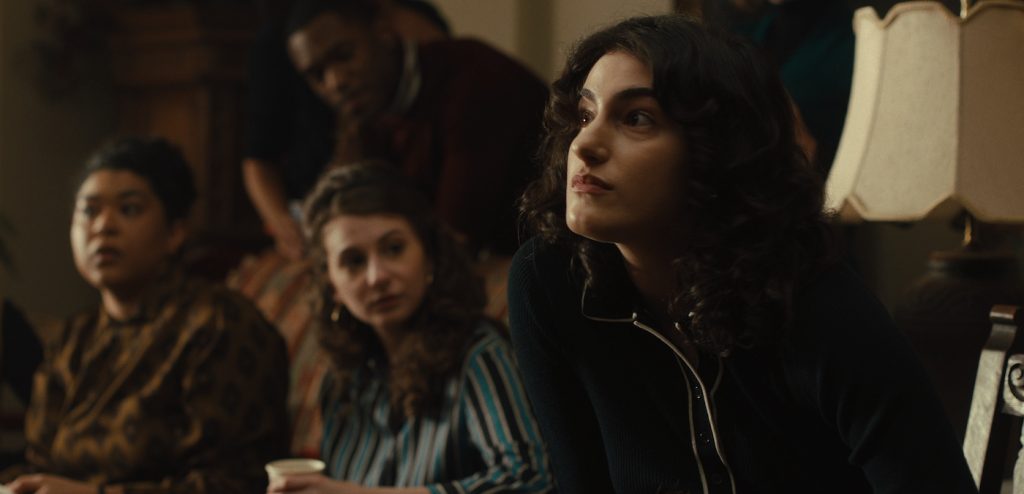
Lilli Kay as Rachelle Horowitz.
CR: Courtesy NETFLIX
You highlight so many crucial relationships Bayard had, and none more so than his relationship with Martin Luther King Jr. How did you approach their fondness for each other, as well as their falling out for a time?
What moved me the most when I learned about Bayard and King was that you have the most iconic, famous religious figure in modern history, aside from the Pope, who was mentored by a gay man. Mind-blowing. I think Bayard’s mentorship of King was the reason he was pushed out— the whisper campaign. Even though Bayard had helped mold King as a leader, it was like, ‘Well, now we can’t have you be associated with him at all.’ The lessons that Bayard taught King about bravery and leadership, we see that in the arc of King’s growth to becoming great, right at the moment before he stepped out onto that podium and made the greatest speech of all time.
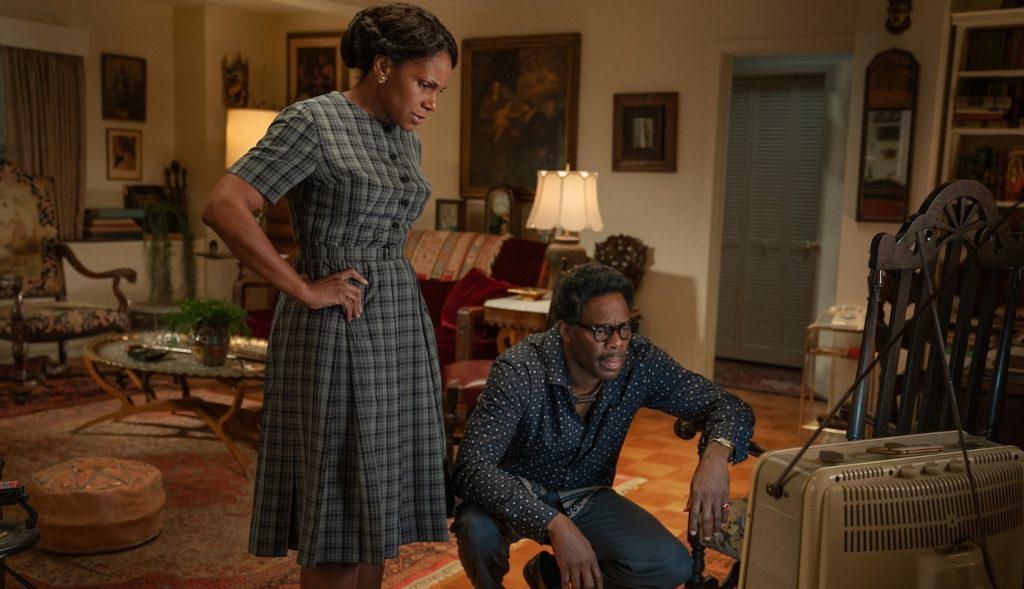
Rustin also makes a very moving point that it’s the relationships between people, rather than simply the greatness of any one individual, that get things done. I’m thinking of Bayard’s conversations with Ella Baker [played by Audra Macdonald], who spurs him on to get back into the game after the whisper campaign.
Ella Baker and Bayard provided that kind of support for each other. Him being queer, and her being a woman in the movement and being underestimated because of that. You understand why Bayard’s relationship with the women in the movement was so important and why he saw them in a way that male leadership didn’t. And Ella was able to see him in ways that the male leadership couldn’t afford to, too. The March on Washington was all about coalition building and relationships. That’s the only way that it happened, and I’m hoping that we can look at that now as a country and a world and just see the importance of intersectionality and being able to support each other’s causes, as opposed to everyone fighting for themselves. Things don’t change that way. Bayard Rustin knew that revolutionary change happens through relationships and coalition building.
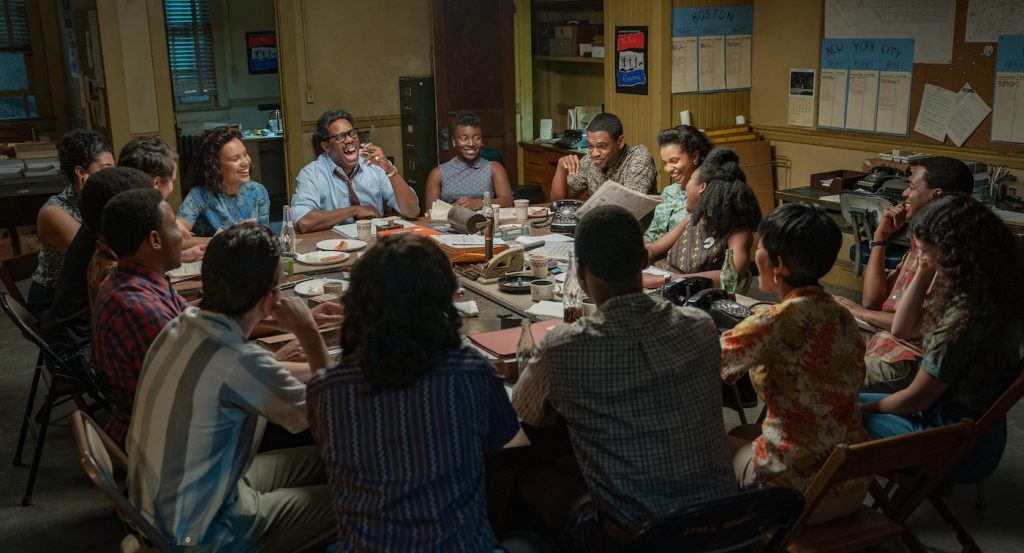
Another thing you take away from Rustin is the tremendous courage Bayard had. To live openly as a gay Black man at that time and be a force of nature in the civil rights movement…it boggles the mind.
People loved Bayard Rustin. Like anyone else, he has his edges, his thorns, but he was a deeply generous, deeply gentle person. The reason why he was out in the thirties, forties, and fifties is because his belief in equality and truth ran that deep. He’s like, if I’m not living it, I can’t fight for it. I can’t live a lie and tell other people to tell the truth. He drew people to him because of that courage.
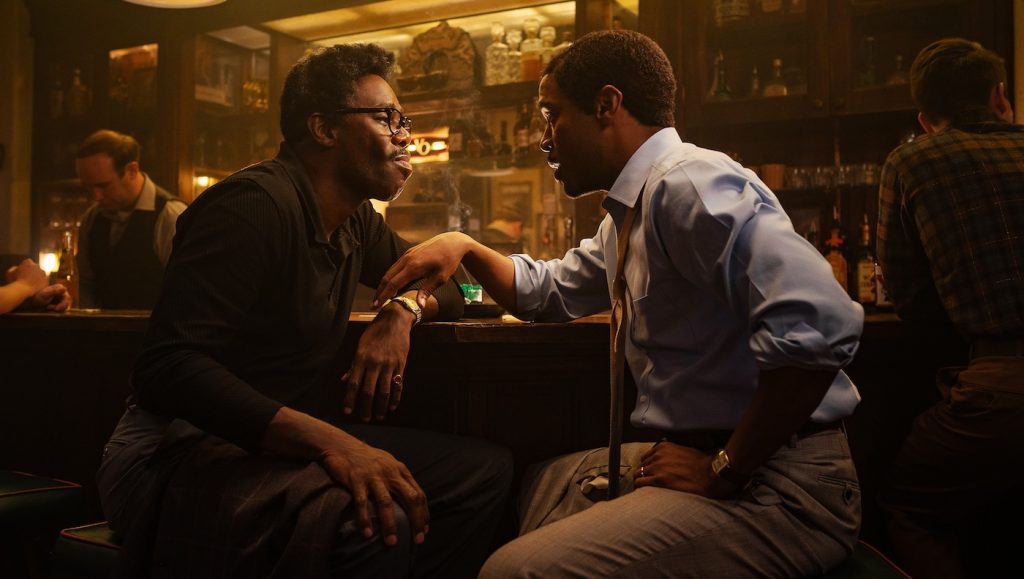
His charm comes through from the very first scene, when he’s being mocked by a young member of the civil rights movement, and by the end of the film, that same young man adores him.
That was one of my favorite scenes to write. Showing Bayard coming back into the movement through the young people. You have to learn what’s going on. Even the old guard didn’t really know what was happening on the lower frequencies, but the young people who were on the ground knew. So Bayard’s relationship with that particular character, Blyden [Grantham Coleman], was a real relationship. Blyden’s a radical straight dude who, by the end, felt like Bayard was a badass. Who is more badass than Bayard Rustin? Who’s able to slay all of these dragons, say, ‘This is who I am, deal with it, come with it, I am going to fight on no matter what.’ I hope other people coming out of it feel that same way about Bayard.
Rustin is in theaters now and streams on Netflix on November 17.
Featured image: Rustin. (L to R) Jeffrey Mackenzie Jordan as Courtney and Colman Domingo as Bayard Rustin. Cr. Parrish Lewis/Netflix © 2023



